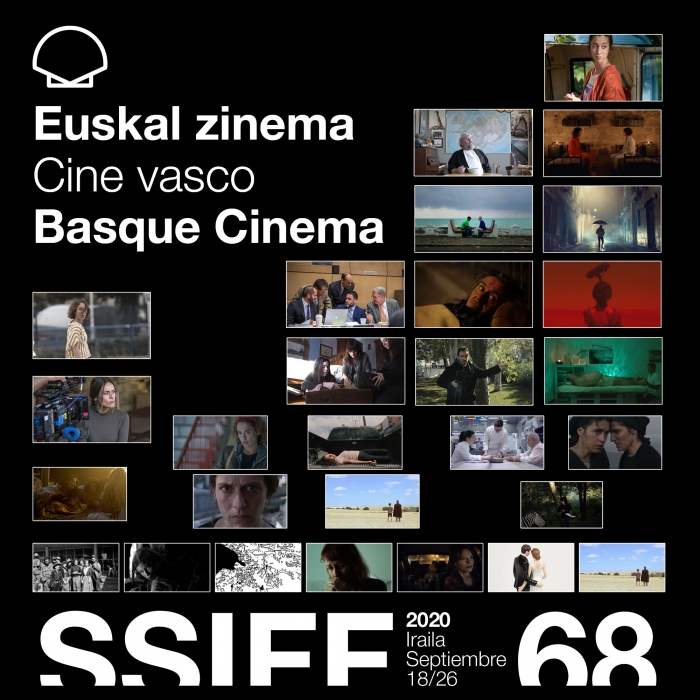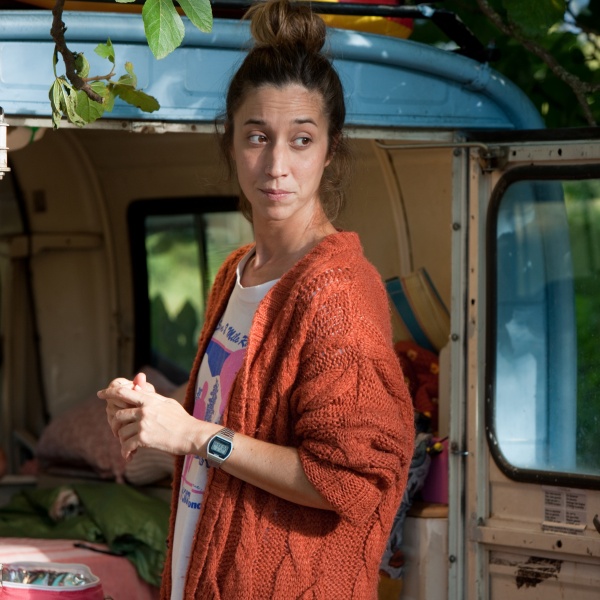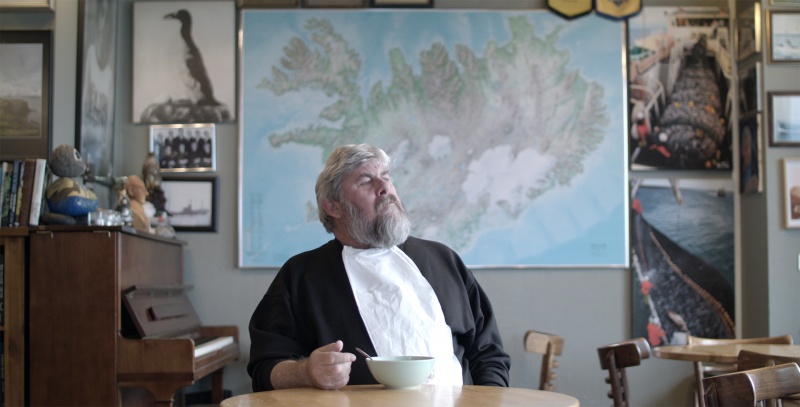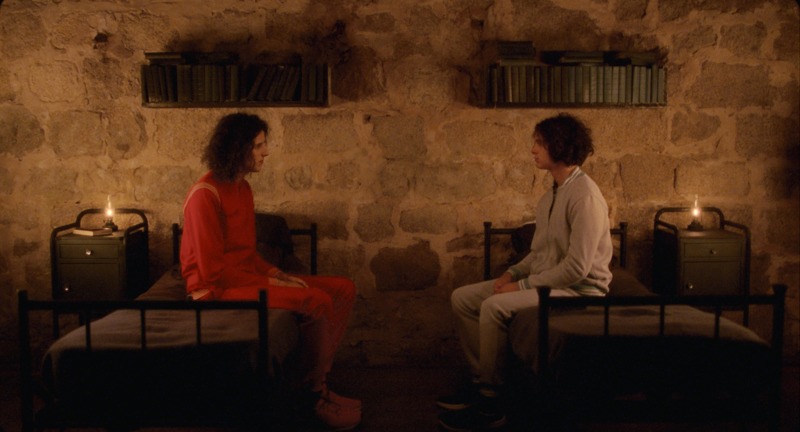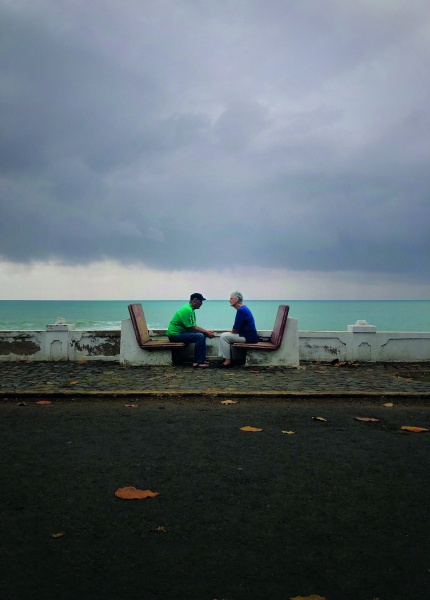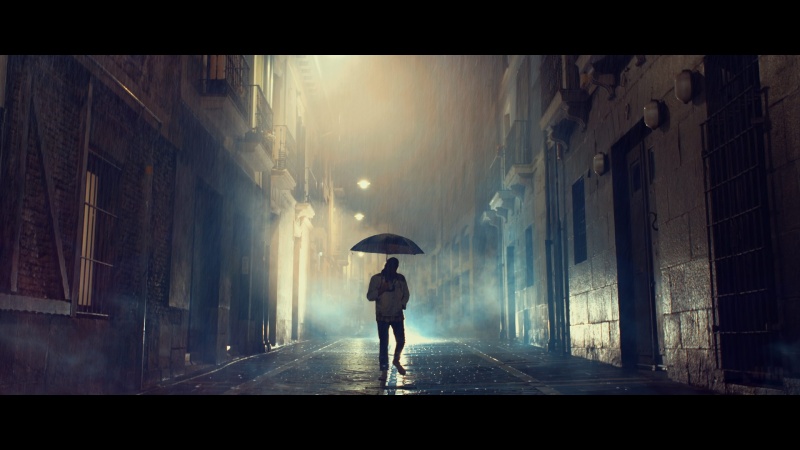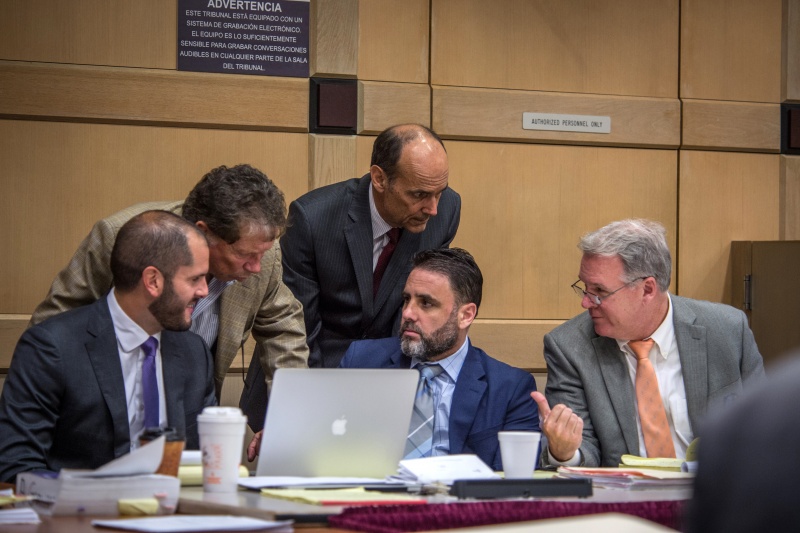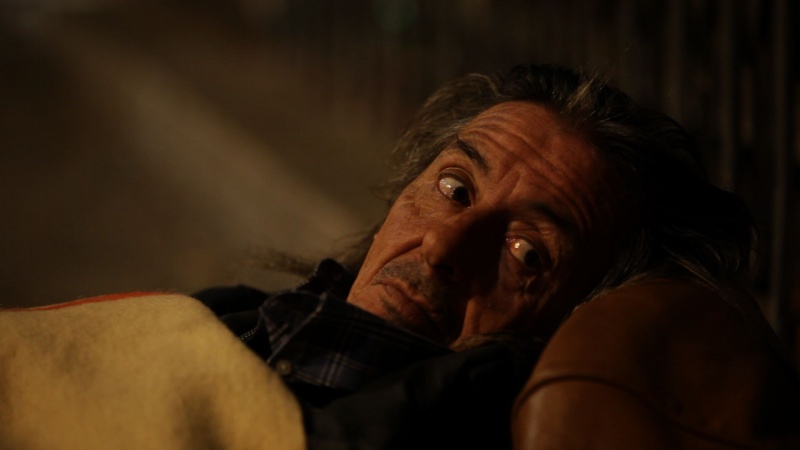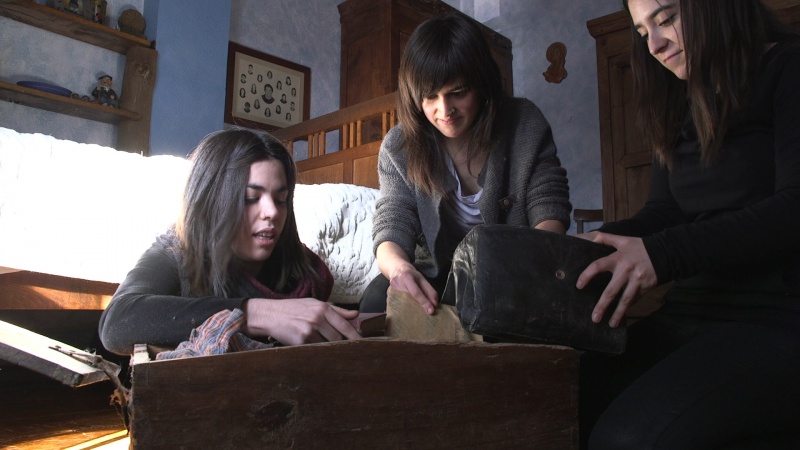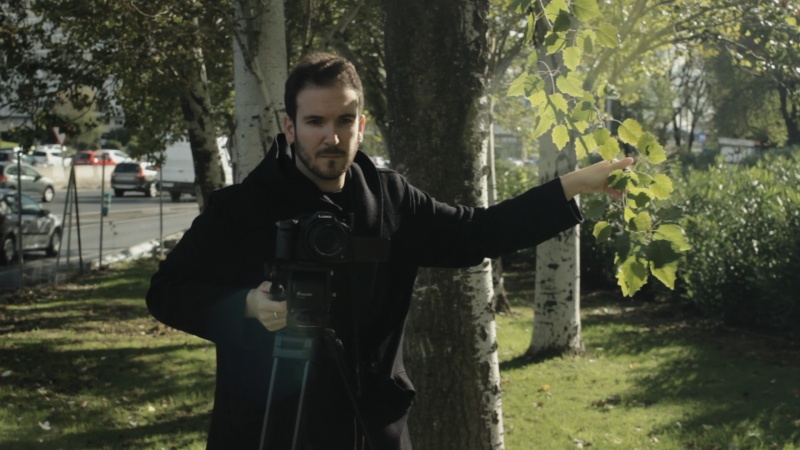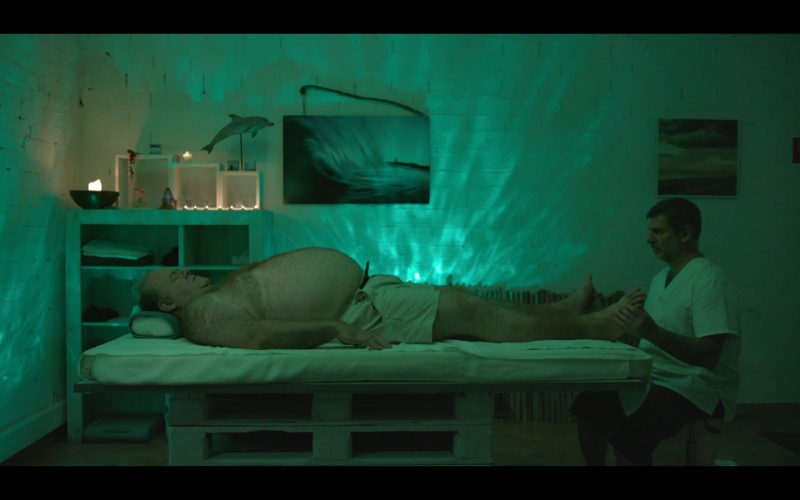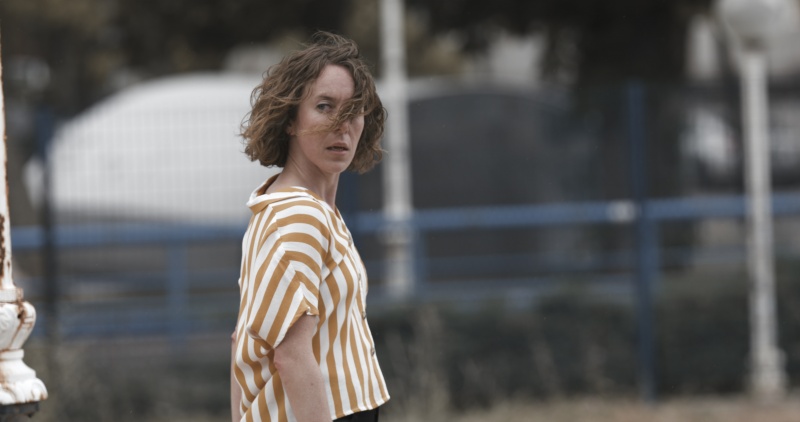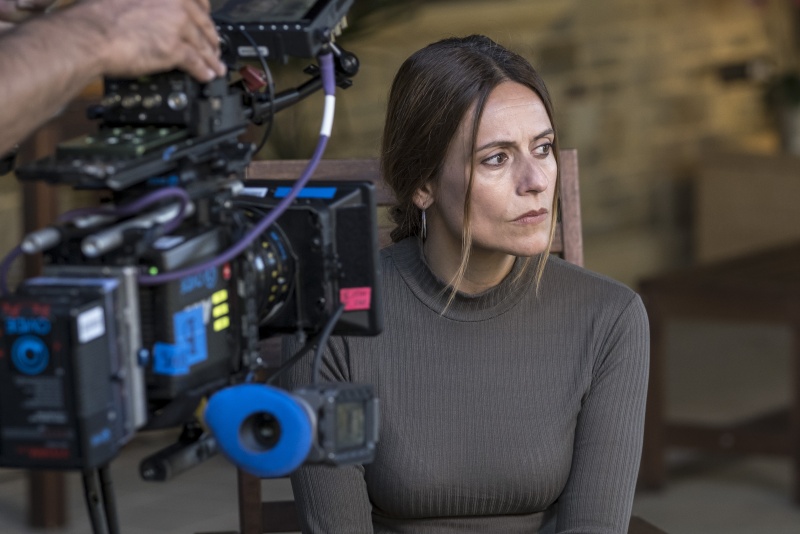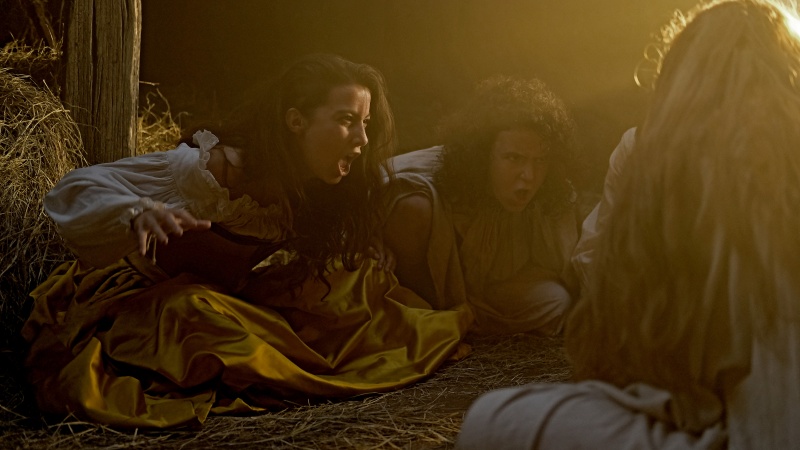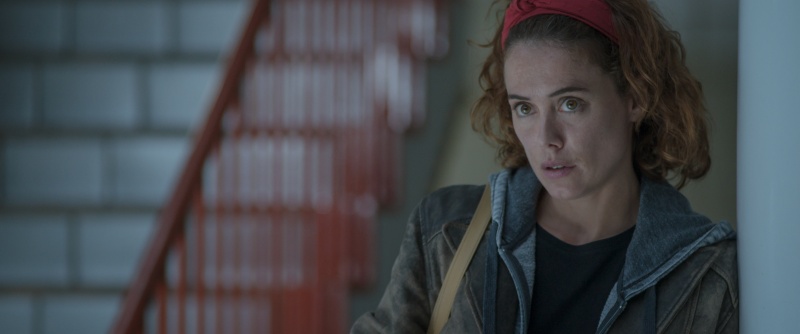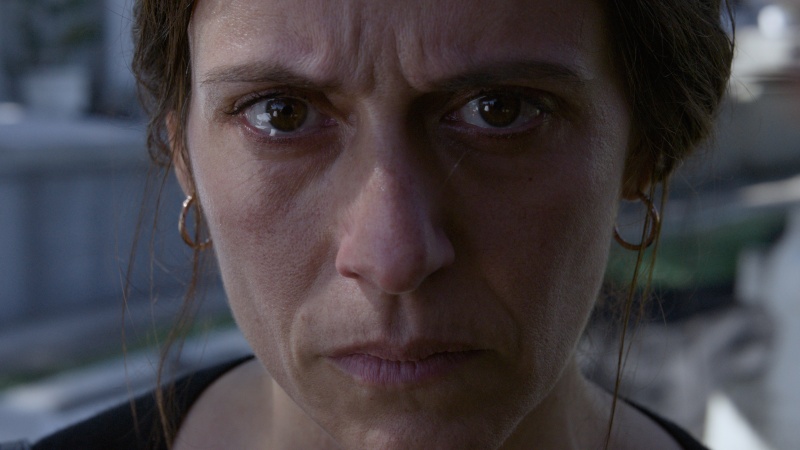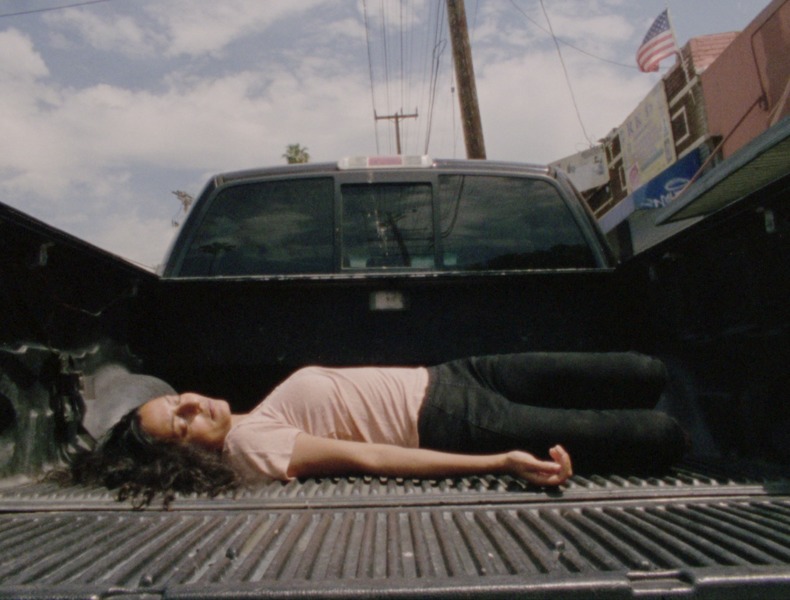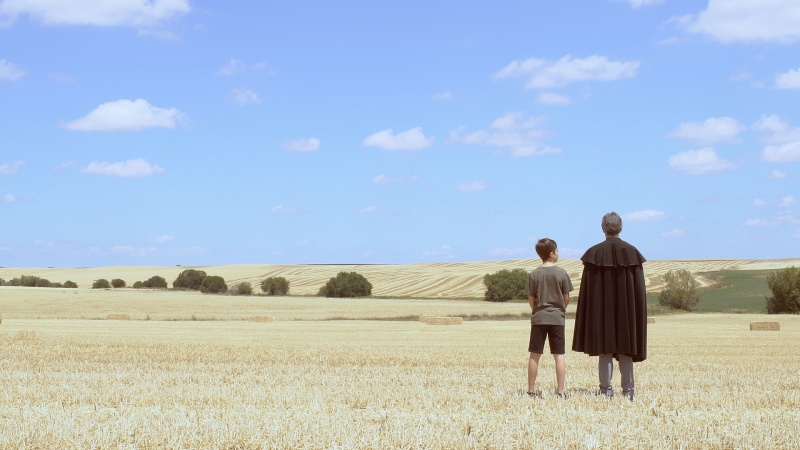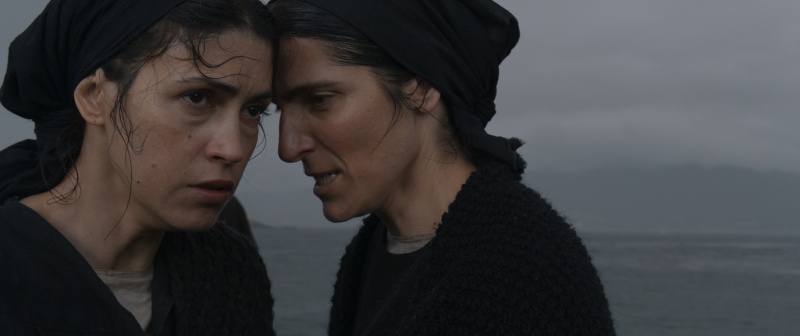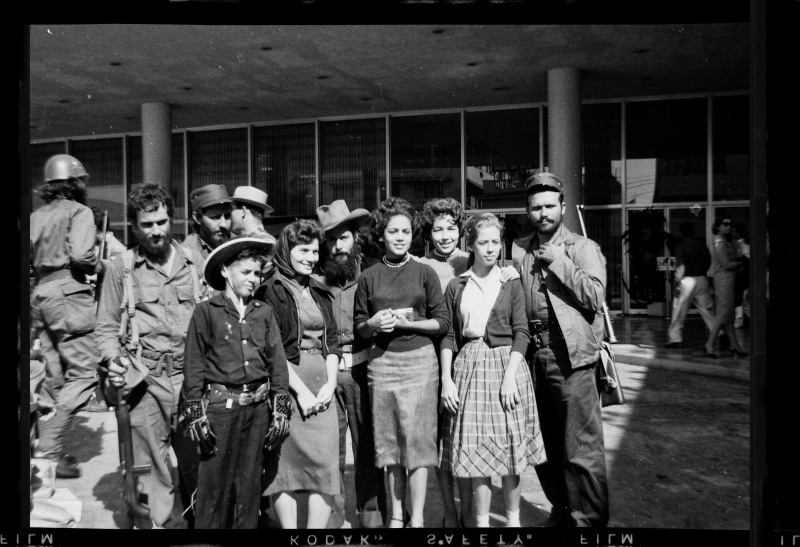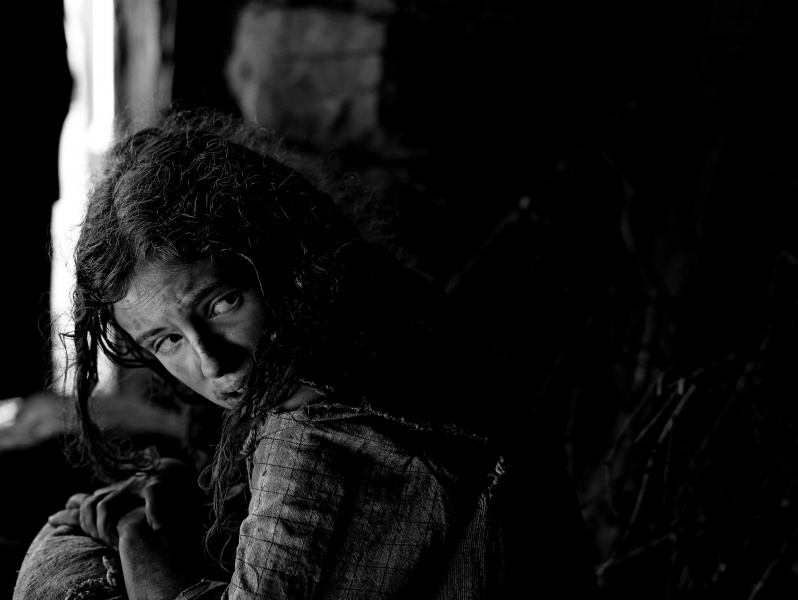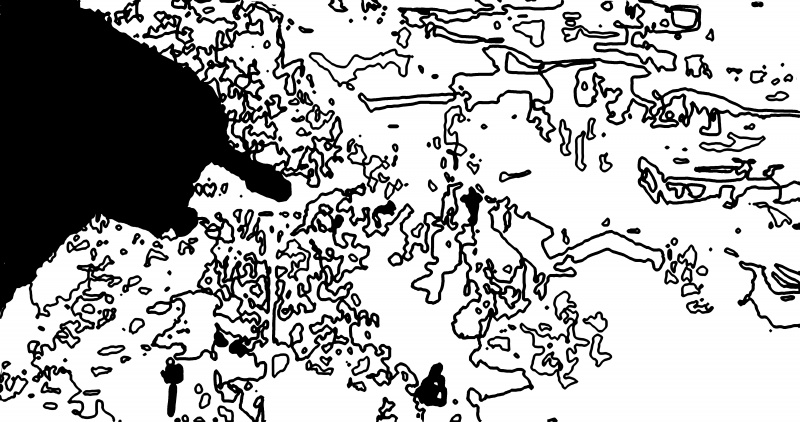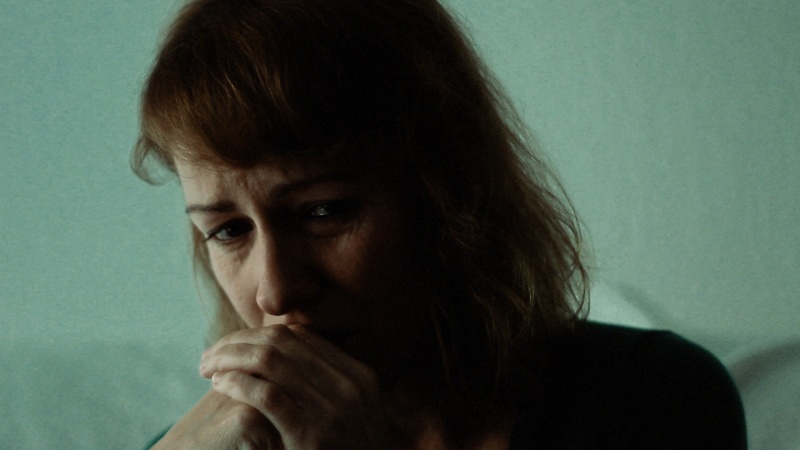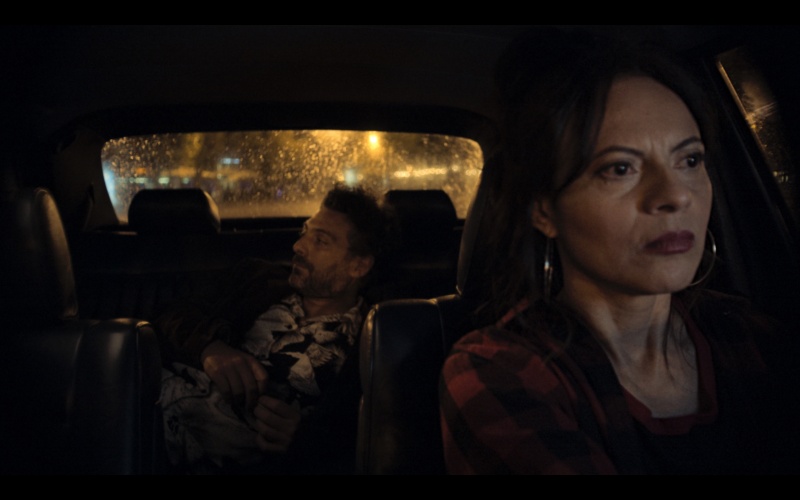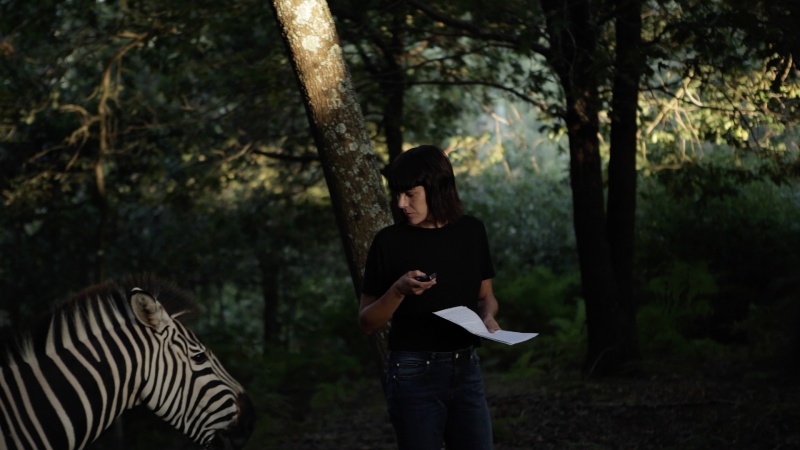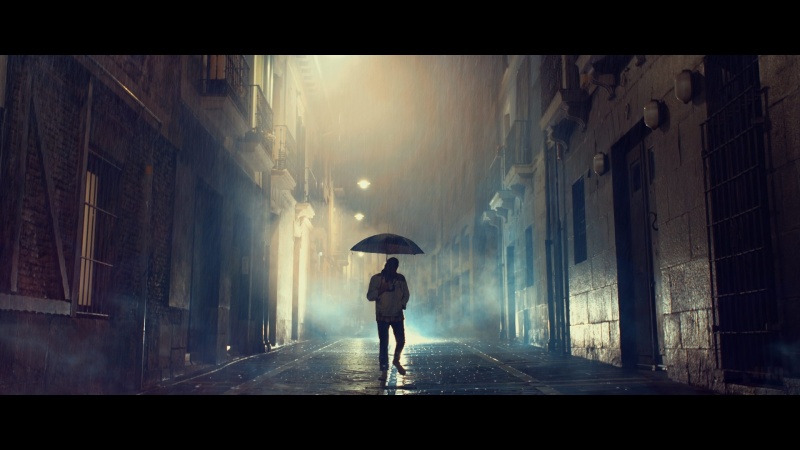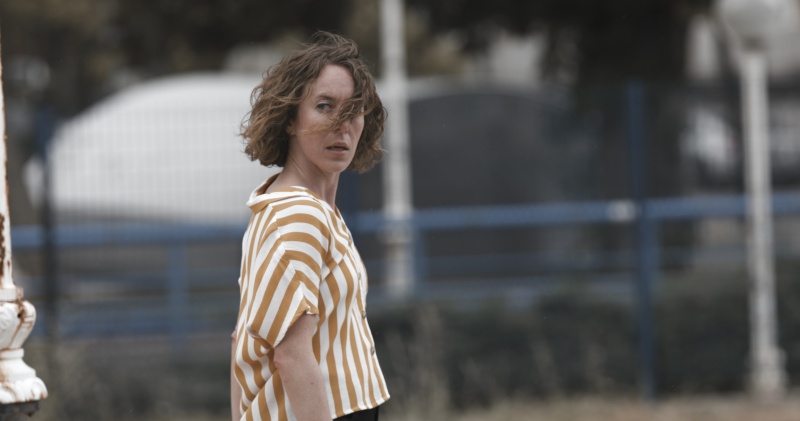Twenty-one titles – 14 feature films, three short films, two series, one medium-length movie and a film at the production stage – make up the Basque participation at the San Sebastian Festival’s 68th edition – spread over the Official Selection, New Directors, Zabaltegi-Tabakalera, Culinary Zinema, Zinemira, Made in Spain, the Basque film and EiTB Galas, and WIP Europa.
Zinemira, the section specifically dedicated to Basque cinema, contains eleven fictional and non-fictional titles. Being feature films screened as world premieres, nine of these works will compete for the Irizar Basque Film Award together with another four works present in other Festival sections. A total of 13 feature films will therefore compete for an award coming with 20,000 euros gross for the film’s producer or producers.
Following the premiere of her debut film Un otoño sin Berlín (An Autumn without Berlin, Basque Film Gala, 2015), Lara Izagirre Garizurie (Amorebieta-Etxano, Bizkaia, 1985) will open Zinemira with Nora, a project selected for the Europe-Latin America Co-Production Forum in 2018. Ane Pikaza, Héctor Alterio and Loli Astoreka figure in the cast of this film about Nora, a young girl who loses her Argentinean grandfather and sets out in an old Dyane 6 car to drive along the Basque Coast and lay his ashes alongside those of her grandmother.
David González Rudiez (Bilbao, 1980), who participated in Zinemira two years ago with La noche los lleva / The Night Take Us (2018), will return to the section to present his fourth feature film, Talento / Talent, the story of a guerrilla film director faced with the challenge, at last, of making a commercial film. French filmmaker Eugène Green (New York, 1947), whose feature films have screened at the Quinzaine des Réalisateurs in Cannes, as well as at the Locarno and Berlin Festivals, proposes in Atarrabi et Mikelats a new look at Basque myth.
Amaia Merino (Donostia-San Sebastian, 1970), who co-wrote and co-directed Asier ETA biok (Asier and I, 2013, Irizar Basque Film Award), now puts her name alongside that of Miguel Ángel Llamas (Noain, Navarra, 1980) to Non dago Mikel? / Where is Mikel? an account of the disappearance in 1985 of Mikel Zabalza, a young man arrested by the Civil Guard whose body was found 20 days later without anybody ever having been tried or sentenced for the crime.
The new collaboration between Josu Martínez (Bilbao, 1986) and Txaber Larreategi (Donostia-San Sebastian, 1986), who have presented in San Sebastian works including Sagarren denbora. 25 urte deserritik itzultzen / Apple Times. 25 Years of Exile (2010), Gure sor lekuaren bila (2015) and Jainkoak ez dit barkatzen (Basque Film Gala, 2018), is entitled Caminho longe and reflects the homecoming journey of the former ETA activist Alfonso Etxegarai after decades in exile on the African island of San Tomé and Principe.
Javier and Romerales, two homeless veterans who sleep in the streets of Madrid, play the lead part in Hijos de Dios / God’s Children, the latest work from Ekain Irigoien (Donostia-San Sebastian, 1981), author of the documentary La cañada de Andrea (2014) and of the short film Kresala, included in the anthology film Kalebegiak (2016), premiered at the Velodrome during the Festival. For his part, after directing the documentaries N’Diawaldi Bouly (2011) and Born in Gambia (2019), Natxo Leuza (Pamplona, 1977) has created a multi-faceted portrait of the musician Enrique Villarreal ‘El Drogas’, former member of the band Barricada and one of the leading lights of Spanish rock music.
A regular in different Festival sections with titles including Aupa Etxebeste! (2005), Urte berri on, amona! / Happy New Year, Grandma! (2011) and Dantza (2018), Telmo Esnal (Zarautz, 1967) has recovered a tale by Pablo Azkue, transforming it into Urtzen, a cinematic essay on existence created based on the recycling of dialogues, images and music. With extensive experience in documentary directing, Pepe Andreu (Elche, 1973) and Rafael Molés (Castellón, 1974) will close the Zinemira section with Lobster Soup, a project which in 2018 screened at the Lau Haizetara Documentary Co-Production Forum and which gives a voice to the parishioners of a picturesque Icelandic café.
Also screening in Zinemira, but out of competition due to the fact that they are not feature films, are El Estado contra Pablo Ibar / The Miramar Murders: The State vs. Pablo Ibar and Jo ta ke / Non Stop. The former is a documentary series of six episodes (two of which will screen in San Sebastian) where the producer and director Olmo Figueredo (Seville, 1980) narrates the judicial odyssey of the man who has spent more than 25 years in a North American prison, including 16 on death row. The latter, by Aitziber Olaskoaga (Getxo, Bizkaia, 1980), is a medium-length film which started to take shape at the Ikusmira Berriak residencies programme and which its author approaches as a voyage to the Herrera de la Mancha prison (Ciudad Real) in order to create a reflection on memory.
OTHER SECTIONS
Several productions previously announced in the other Festival sections will however compete for the Irizar Basque Film Award: Akelarre, by Pablo Agüero, included in the Official Selection; Ane, by David Pérez Sañudo, and Hil kanpaiak / Death Knell, by Imanol Rayo, all screening in New Directors; and ARZAK Since 1897, by Asier Altuna, opening film of Culinary Zinema.
Basque productions also have their place in Zabaltegi-Tabakalera, with participation of the short films Autoficción / Autofiction, by Laida Lertxundi, and Ya no duermo, by Marina Palacio, as well as in Made in Spain. This section, a showcase of the year’s Spanish films, includes the participation of La isla de las mentiras / The Island of Lies, where its author, Paula Cons Varela (A Coruña, Spain, 1976) evokes the true story of the ship sunk in 1921, known as the Galician Titanic. This is the first fictional feature by its director, who had previously put her name to documentaries such as La batalla desconocida (2017) and El caso Diana Quer, 500 días (2018).
The Basque Film Gala, to take place on September 22 at the Victoria Eugenia Theatre, will see the screening of Bizimina, a short film directed by Migueltxo Molina (Pamplona, 1978), Pablo Iraburu (Pamplona, 1969) and Jon Maya (Errenteria, 1977) which combines documentary and dance to construct a comforting story in these times of pandemic. The gala will also include presentation of the Zinemira Award, an honorary accolade given by the Festival and the Ibaia and EPE/AVE producers associations in recognition of the career of an outstanding figure of Basque cinema. To date this award has gone to Imanol Uribe (2009), Álex Angulo (2010), Elías Querejeta (2011), Michel Gaztambide (2012), Juanba Berasategi (2013), Pedro Olea (2014), Karmele Soler (2015), Ramón Barea (2016), Julia Juaniz (2017), Ramón Agirre (2018) and José María Lara, 'Txepe' Lara (2019). The recipient of the 2020 award will be announced soon.
Furthermore, on the 23rd the EiTB gala will host the release of Alardea / Boast, a 4-episode series directed by David Pérez Sañudo about the participation of women in the traditional parades held in the towns of Irun and Hondarribia. The Festival will screen two of its episodes.
Lastly, Arantza Santesteban (Pamplona, 1979) will participate with a film at the production stage, 918 gau / 918 Nights in WIP Europa, the San Sebastian Festival’s new work in progress which emerges as an evolution of Glocal in Progress. This film at the production stage took shape at the Ikusmira Berriak residencies programme.
| ZINEMIRA |
Section dedicated to Basque film organised by the San Sebastian Festival and the Basque Government Department of Culture, with the sponsorship of Irizar and EITB; and the collaboration of the Filmoteca Vasca, EPE/AVE, IBAIA and Zineuskadi.
Nora is 30 years old; she lives with her Argentinian grandfather Nicolás and regularly takes care of her friend Meri's children. She writes the horoscope for the town newspaper, although her dream is to be a travel writer. When her grandfather dies, she inherits an old Dyane 6. Despite being a terrible driver, Nora will set out aimlessly on a road trip along the Basque coast so that her grandfather's ashes may finally rest beside those of her grandmother. The road will soon teach her that she's not a born traveller and that her dream had nothing to do with roving, but was only an excuse for the chance to be free, to grow, to close wounds and, for the first time, to find her own happiness.
Every morning Krilli prepares the myriad ingredients required to make the lobster soup at the Bryggjan café, a tiny eatery in Iceland’s dullest town. His wife helps him in the kitchen and yearns to return to Rejkyavik. In the café, Krilli’s brother Alli sits with the old fishermen, the last boxer in Iceland and the translator of Don Quixote into Icelandic. Every day they find a new answer to the world’s problems. Once a month the neighbours meet at the Bryggjan café to remember those who died in Grindavik and pronounce their names. Four crazy musicians play jazz. A few lost tourists turn up at the fishing harbour and are captivated by the atmosphere in the café. Real people, they think. A real place. On the other side of the mountain is the Blue Lagoon, the island’s great attraction. People from all over the world come in fascination to see the volcanoes, the ice and the genesis of the Earth. But now the mountain, the tourists and the lava field seem to increasingly push the whole town towards the sea.
The goddess Mari entrusts her two sons, both born to a mortal father, to the Devil for their education. When they reach their majority, one, Mikelats, decides to stay with the master, while the other, Atarrabi, flees. But the Devil succeeds in retaining his shadow.
Former ETA militant Alfonso Etxegarai makes his way home after decades of exile on the African island Sao Tomé and Principe, to which he had been deported by France and Spain in 1986. He is accompanied by his indefatigable partner, Kristiane Etxaluz.
A biographical documentary which explores, like a river, the length and breadth of the figure of Enrique Villareal. A kind-hearted portrait where individual memory converges with its collective counterpart to bring us a tale taking an in-depth look at the historical and vital background of one of the leading lights of Rock & Roll in Spanish. An emotional story where we can observe the different faces and paths embraced by this singular artist. This is the story of a being who walks crooked so that he can see what's on the other side. It is the story of Enrique Villareal, “El Drogas”.
In July 1994, Pablo Ibar is arrested, accused of a triple murder in Miami. A crime that shook the foundations of the whole community given that the whole thing was recorded on a home security camera. Although he defends his innocence throughout, Pablo is condemned to death and will spend more than 20 years in prison... until Florida Supreme Court confirms the lack of proof against him and orders a retrial. Back in the starting box, the District Attorney’s office once again asks for the death sentence while the Ibar family sets about finding the money to pay for a trial that will cost more than a million dollars. This is his last chance.
Javier and Romerales, two homeless veterans, sleep under one of the cornices surrounding Madrid’s tourist-packed Plaza de la Ópera. Together with them, a long journey will begin round the busy streets of the capital, where surviving without giving in to madness becomes all of an art. The friendship between these two characters and their outlandish lives make this film a hymn to life, death and dignity.
A film crew embark on a persistant search to find the cracks between two strongly polarised national identities. The successive refusals and silences will mark the way from the Basque Country to La Mancha, home of the first high-security prison built in Spain. A journey with no answers and a single question: How can we represent History when the images are denied to us?
Account of the disappearance in 1985 of Mikel Zabalza, a young man from Navarre arrested by the Guardia Civil, who confused him with an ETA activist. For the 20 days that Zabalza was missing, the mistrust of Basque society towards the official version ended with huge protests and social unrest when his body was finally found floating in the waters of the Bidasoa River. Despite the generalised conviction that Zabalza had died from torture, nobody was ever tried or punished for these occurrences. In November 2020 it will be 35 years since he died, and his family continues to call for the truth about what really happened.
Jorge is a guerrilla filmmaker on the point of completing his latest and most ambitious work, the one he hopes will finally earn him an established place in the avant-garde film scene. An improbable grant leads to the reappearance of an old project that will turn his life upside down: to make a film with money, at last. A commercial film.
During lockdown, Telmo Esnal recovered a long-forgotten project: UR, a tale by Pablo Azkue taking a deep look at the conscience and the sea. Urtzen is a special cinematic essay, a curious collage which, recycling and reusing dialogues, images and music, reflects on existence.
| BASQUE ZINEMA GALA |
Bizimina combines documentary cinema with dance. Through a series of independent pieces, it composes a story around the emotions we find it so difficult to express these days: distance, longing for others, desire, the community spirit, impotence, isolation, confusion, hope. The choreography builds a tale serving to provide comfort and company in this uncertain time.
| EITB GALA |
Amaia’s life is turned upside down when the women’s association of Uriola, her town, decide to participate in the traditional Alarde parade. Becoming involved in this matter is something that could bring this primary school teacher into confrontation with her community, and with her family. Deciding what to do is an enormous dilemma for her. The planned struggle also implies Amaia’s reunion with her mother, Edurne, now a nurse, and from whom she was distanced 25 years ago after the divorce from and subsequent death of her father. Amaia has never forgiven her mother for putting her involvement in the parade before the interests of the family. She has no intention of letting the same thing happen again, precisely in the year that her husband Aitor is named burgomaster and her daughter Jone, a water carrier. Screening of two of the four episodes making up this miniseries.
| OFFICIAL SELECTION - In competition |
Basque Country, 1609. The men of the region are at sea. Ana joins other girls from the village to dance in the woods. Judge Rostegui, given the task of purifying the region by the King, arrests the women and accuses them of witchcraft. He decides to do what it takes to make them confess what they know about the akelarre, a ceremony with magical connotations during which the Devil is said to initiate his servants and mate with them. Winning project of the Arte Kino International Prize at the VI Europe-Latin America Co-Production Forum in 2017.
| NEW DIRECTORS |
The Basque Country, 2009. Lide is a security guard for the high-speed train works, a project that generates social protests in the streets. Coming home after work and partying all night, she makes breakfast for two, but her teenage daughter, Ane, is nowhere to be found. The next day, she’s still not back. Lide isn’t particularly worried, believing that her disappearance is probably connected to their huge argument of the previous day. Looking through Ane’s things, she gradually realises that her daughter is a stranger to her. Debut film.
Human bones are found at the Garizmendi farmhouse. Farmers Fermín and Karmen call their son Néstor, who reports the matter to the authorities. But, when the agents turn up, the bones are gone. Suddenly, the bell on the nearby chapel begins to peal. This bad omen announces the coming of tragic events and reopens old wounds within the family and those around it. Second feature film by its director.
| ZABALTEGI-TABAKALERA |
Borrowing its name from the title of a literary genre, the film recognises the indeterminacy of both fiction and of the being. Film noir elements are reduced to inexpressive gestures under the bright Californian sunlight. Field recordings made in New Zealand can be heard while the women talk to one another about motherhood, abortion, break-ups and anxiety. A civil rights demonstration moves slowly along a street. The bodies appear in states of weariness, injured or relaxed, while the songs of Irma Thomas and Goldberg evoke the passing of time and an uncertain future.
Ya no duermo is a family-made movie showing us Miguel and his Uncle Kechus, who want to shoot a film about vampires. In that endeavour to create something together, reality and fiction alternate, in a game which also shows the particular relationship established between boy and adult.
| CULINARY ZINEMA |
When Juan Mari told his mother he wanted to study catering and continue in the tradition of the family business, she tried to convince him to choose a career offering a better future. Sixty years later, the social prestige enjoyed by gastronomy is enormous, the change has been revolutionary and today many children encouraged by their parents dream of becoming great chefs. Juan Mari has lived this evolution in first person and has been a fundamental part of it. Arzak, the family eatery situated at the top of San Sebastian’s Alto de Miracruz, has become one of the world’s best restaurants. Today, the new generation has taken up the baton. Elena Arzak, Juan Mari’s daughter, now runs the restaurant and her father is gradually retiring. The time has come to look back, to take stock of a whole life; to analyse the transformation of traditional cuisine into the new cuisine d’auteur.
| MADE IN SPAIN |
In the early hours of 2 January 1921, the ship Santa Isabel, on its way to Buenos Aires and with 260 people on board, sinks off the sheer, harsh coast of Sálvora island, in Galicia. With very few men on the island, three young local women, María, Josefa and Cipriana, set about rescuing 48 people, a heroic act that will cost them very dearly. After those events, an Argentine journalist, León, makes his way to Sálvora to cover the story of the shipwreck. Gradually he will discover that on said night there had been too many coincidences, even starting to suspect that they ship may have been deliberately sunk. Meanwhile, nothing will be the same. The shipwreck will shake and forever change life on the island. Inspired by true events.
| ZINEMIRA KIMUAK (for professionals and accredited guests only) |
The section will also include the selection of shorts in the Kimuak 2019 programme, an initiative of the Basque Government Department of Culture and Euskadiko Filmategia-Filmoteca Vasca with the objective of lending visibility to the best Basque shorts of the year. This year’s Kimuak selection includes seven short films.
April 2013. Despite the American embargo, citizen Bob Wood returns to Cuba almost 60 years after he left.
Dar-dar is a mythical Basque demon that eats fingers. He says: ‘Dar, dar, dar, bring your finger for dinner. If you decline, I will return at night time and your soul will be mine’.
In 1969, artist Rafael Ruiz Balerdi made the short animated film Homenaje a Tarzán (Homage to Tarzan), which ended with an enigmatic «to be continued». Ehiza (Hunting) is its continuation. It accepts Balerdi's aesthetic proposal, but steps away from the colonial perspective of the films that inspired that work to depict the harshness of our own reality: harassment, violence and destruction.
A collection of stories about people who had a fleeting vision of the future after an inexplicable cosmic event.
Based on one of the directors’ own experiences, this film is a somewhat ironical tribute to the famous hidden camera TV programme Taxicab Confessions and to New York City.
- You really loved him, didn’t you?
- Yes. I stopped loving him recently.
(Interferences. Silences. Fissures. Two women talking. A radio-graphy).
Ya no duermo is a family-made movie showing us Miguel and his Uncle Kechus, who want to shoot a film about vampires. In that endeavour to create something together, reality and fiction alternate, in a game which also shows the particular relationship established between boy and adult.
| WIP EUROPA |
"On the night of October 4th, 2007, several Spanish National Police Corps vans stopped the car in which I was travelling with other people. After showing them our ID, they told us we were under arrest. We were accused of the crime of terrorism, due to our political activity in a party declared illegal under the Political Parties Law of the year 2002. That same moment marked the start of a long road that would become my new life: prison. In total, I spent 918 nights in prison. Almost three years during which I completely disappeared from my previous life" (Arantza Santesteban). Selected for Ikusmira Berriak in 2018.
FILMS SPOKEN PARTIALLY OR TOTALLY IN BASQUE |
- 918 GAU / 918 NIGHTS, by Arantza Santesteban (WIP Europa)
- ALARDEA / BOAST, by David Pérez Sañudo (EiTB Gala)
- ATARRABI ET MIKELATS, by Eugène Green (Zinemira)
- AKELARRE, by Pablo Agüero (Official Selection)
- ANE, by David Pérez Sañudo (New Directors)
- ARZAK SINCE 1897, by Asier Altuna (Culinary Zinema)
- BIZIMINA, by Pablo Iraburu Allegue, Migueltxo Molina and Jon Maya (Basque Cinema Gala)
- CAMINHO LONGE, by Josu Martinez and Txaber Larreategi (Zinemira)
- DAR-DAR, by Paul Urkijo Alijo (Zinemira-Kimuak)
- HIL KANPAIAK / DEATH KNELL, by Imanol Rayo (New Directors)
- JO TA KE / NON-STOP, by Aitziber Olaskoaga (Zinemira)
- NON DAGO MIKEL? / WHERE IS MIKEL?, by Amaia Merino and Miguel Angel Llamas (Zinemira)
- NORA, by Lara Izagirre (Zinemira)
- QUEBRANTOS / BREACHES, by Maria Elorza and Koldo Almandoz (Zinemira-Kimuak)
- URTZEN, by Telmo Esnal (Zinemira)
CHILDREN’S FILMS DUBBED INTO BASQUE |
Sponsored by the company Amenábar, the Movies for Kids section offers a selection of films for an audience of children to be screened in Basque, thanks to the collaboration of Zineuskadi as part of the Zinema Euskaraz (Cinema in Basque) programme.
- ALFONBRA MAGIKOAK / UP AND AWAY, by Karsten Kiilerich
- MANOU / MANOU THE SWIFT, by Andrea Block and Christian Haas
- MR. LINK: JATORRI GALDUA / MISSING LINK, by Chris Butler
- PLAYMOBIL: FILMA / PLAYMOBIL: THE MOVIE, by Lino DiSalvo
- POKÉMON PIKATXU DETEKTIBEA / POKÉMON DETECTIVE PIKACHU, by Rob Letterman
- TERRA WILLY: PLANETA EZEZAGUNA / TERRA WILLY: UNEXPLORED PLANET, by Eric Tosti
Furthermore, thanks to collaboration of the Donostia International Physics Center (DIPC) and the Filmoteca Vasca, the Festival will run an online screening for schools in Gipuzkoa of Enrique Gato’s film Atrapa la bandera, dubbed into Basque. The film will be introduced by Eneko Axpe, a Basque physicist who currently researches and works for NASA and for Stanford University (California).
FILMS IN OTHER SECTIONS WITH BASQUE SUBTITLES |
- CHUPACABRA by Grigory Kolomytsev
- GAL-MAE-GI / GULL by Kim Mi-jo
- GĒ SHĒNG YUÁN HÉ MÀN BÀN PĀI / SLOW SINGING by Dong Xingyi
- JAK NAJDALEJ STĄD / I NEVER CRY by Piotr Domalewski
- LIMBO by Ben Sharrock
- UMIBE NO KANOJOTACHI / ALONG THE SEA by Akio Fujimoto
- A METAMORFOSE DOS PÁSSAROS / THE METAMORPHOSIS OF BIRDS, by Catarina Vasconcelos
- COLD MERIDIAN, by Peter Strickland
- DOMANGCHIN YEOJA / THE WOMAN WHO RAN, by Hong Sang-soo
- DUSTIN, by Naïla Guiguet
- HUAN LE SHI GUANG / HAVING A GOOD TIME, by Bell Zhong
- LE SEL DES LARMES / THE SALT OF TEARS, by Philippe Garrel
- PING JING / THE CALMING, by Song Fang
- STEPHANIE, by Leonardo van Dijl
- THE TROUBLE WITH BEING BORN, by Sandra Wollner
- ZHELTAYA KOSHKA / YELLOW CAT,by Adilkhan Yerzhanov
- ADN / DNA, by Maïwenn
- THE FATHER, by Florian Zeller
- THE TRUFFLE HUNTERS by Michael Dweck and Gregory Kershaw
- NON DAGO MIKEL? / WHERE IS MIKEL? (¿DÓNDE ESTÁ MIKEL?), by Amaia Merino and Miguel Angel Llamas

